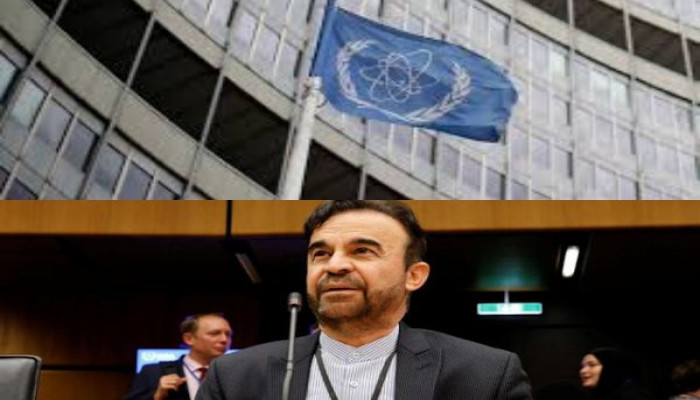UN Watchdog declares Iran in breach of nuclear pact, Tehran responds with counter measures
- In Reports
- 08:11 PM, Jun 12, 2025
- Myind Staff
The board of governors at the UN nuclear watchdog declared on Thursday that Iran had breached its non-proliferation obligations. Iran responded by announcing counter-measures. An Iranian official said a "friendly country" had warned Iran of a possible Israeli attack.
The Omani foreign minister said US and Iranian officials would hold a sixth round of talks on Sunday in Oman. These talks would address Iran’s accelerating uranium enrichment programme.
US President Donald Trump said on Wednesday that US personnel were being moved out of the region. He said the area “could be a dangerous place” and that Iran would not be allowed to develop a nuclear weapon.
The Gaza war between Israel and the Palestinian group Hamas had already destabilised Middle East security.
Trump threatened to bomb Iran if nuclear talks did not progress. He said he had become less confident that Iran would agree to stop enriching uranium. Iran wanted US sanctions lifted—sanctions that had been imposed since 2018.
Iranian President Masoud Pezeshkian told state media that even if bombs destroyed Iran’s nuclear facilities, they would rebuild them.
The IAEA’s Board of Governors formally found Iran in breach of its non-proliferation obligations. It was the first time in nearly 20 years. The decision raised the possibility of referring Iran to the UN Security Council. This decision followed years of disputes between Iran and the IAEA after Trump pulled the US out of the 2015 nuclear deal in 2018.
An IAEA official said Iran had informed the agency that it planned to open a third uranium enrichment plant.
After the IAEA vote, the Israeli Foreign Ministry said Iran’s actions undermined the global Non-Proliferation Treaty and posed an imminent threat to regional and international security.
Iran had signed the NPT. Israel had not. Israel was believed to have the only nuclear weapons arsenal in the Middle East.
Israeli media said Israeli Strategic Affairs Minister Ron Dermer and Mossad chief David Barnea would travel to Oman. They would meet US Special Envoy Steve Witkoff before the US-Iran talks to clarify Israel’s position.
After a meeting with European foreign ministers in Rome, EU foreign policy chief Kaja Kallas said the EU’s concerns about Iran went beyond its nuclear programme. She said Iran’s support for Russia and its detention of EU citizens also concerned the bloc.
Oil prices rose after Trump’s announcement but later eased. Shares in European airlines, travel firms, and hotel groups fell as investors feared tensions would lower demand.
Paul McNamara, a director of emerging market debt at GAM, said Iran was at the centre of the crisis. He said there was a lot of scope for things to get worse if a US or Israeli military strike happened. He said a sustained attack would escalate the situation. A senior Iraqi official who oversees southern oilfields said foreign energy companies were continuing operations as usual.
Dubai-based Emirates airline said it had not changed operations but was monitoring the situation.
Iranian state TV said Tehran’s response to the IAEA resolution was one of several counter-measures it was taking.
An IAEA official said Iran had not provided further details on the planned new enrichment site, such as its location for UN inspectors to monitor it.
Behrouz Kamalvandi, spokesperson for Iran’s atomic energy agency, told state TV that Iran had told the IAEA about two counter-measures. One of them was upgrading centrifuges at Fordow from first to sixth generation. He said this would significantly boost enriched uranium production.
Enrichment can be used to produce reactor fuel or, at higher levels, to make atomic bombs. Iran said its nuclear programme was only for peaceful purposes.
A senior Iranian official told Reuters that rising tensions in the region might pressure Tehran to change its position on its nuclear rights.
The Iranian official said a “friendly” country had warned Iran about a potential Israeli strike on its nuclear sites.
Iranian state media reported that the military began drills earlier than planned to focus on “enemy movements.”
Revolutionary Guards commander Hossein Salami told state media that Iran’s response to any Israeli attack would be “more forceful and destructive” than in the past.
Last year, Iran launched a barrage of missiles at Israel after Israeli forces bombed Iran’s consulate in Damascus. Israel responded with missile strikes in Iran and Syria. Those were the first direct attacks between the two long-time enemies.







Comments